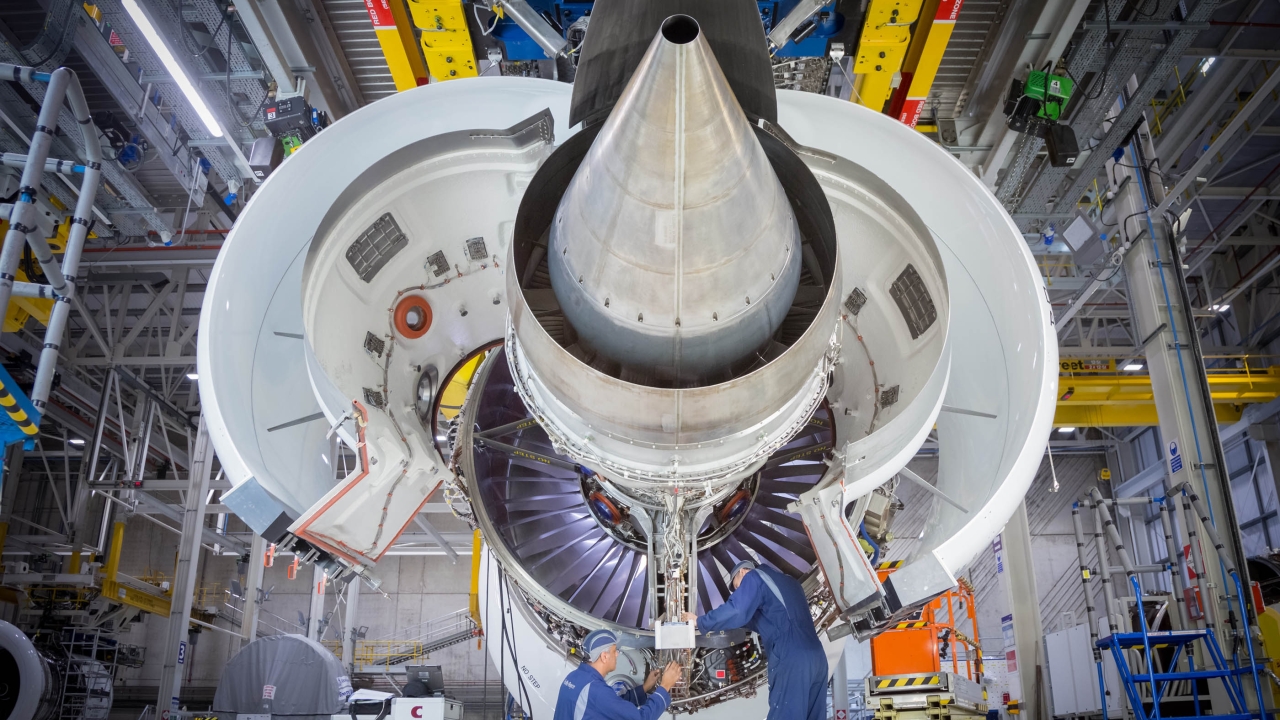Congo's Desire to take up the challenge
Congo Airways SA, the national carrier for Democratic Republic of Congo, has huge plans for the future. Githae Mwaniki finds out more from the airline’s CEO, Desire Balazire Bantu.

Congo Airways SA turns four this year. In another five to ten years it might be almost totally unrecognisable if all of its plans come to fruition.
That’s the view of Desire Balazire Bantu, who was appointed CEO in April 2016.
The 55-year-old has more than 30 years’ experience in auditing, corporate finance, management, accounting and public finance. He previously worked for KPMG – one of the world’s ‘big four’ auditors – before becoming adviser to the DRC’s minister of finance and senior adviser to the prime minister.
“In the next five to ten years, Congo Airways will be a big company in central Africa,” he predicted. “The airline will be flying to Europe, Asia and America.”
It’s a bold statement for an airline that currently boasts just five aircraft, but the CEO has good reason for his optimism.
“The strategic position of the DRC is a valuable asset for the rapid growth of the airline,” he explained. “It is the only African state that has nine neighbours – Uganda, Rwanda, Burundi, Tanzania, Zambia, Angola, Republic of Congo, Central African Republic and South Sudan.
“DRC is the second biggest country in Africa by its size and one of the top five populated. This shows that there is a potential market for an airline company.”
Bantu believes that this massive catchment area – central Africa is generally poorly served – allied to the fact that his team is determined to succeed over the operational challenges thrown up by the continent, will make all the difference.
Congo Airways was created in August 2014 and launched commercial flights in October 2015. Already it has carried more than 700,000 passengers. The state owns 39.93% of the airline with 30.68% in the hands of the INSS pension fund, employees taking 1.70%, and the remainder belonging to public-owned companies.
“Congo Airways is already starting to conquer the African sky,” said Bantu. “We started with Johannesburg and in the coming weeks want to add Douala (Cameroon), Cotonou (Benin), and Abidjan (Ivory Coast).”
Congo Airways SA – the SA initials are a French acronym which refer to limited companies – currently operates five aircraft. “Four were acquired on equity – two Airbus A320-200s and two Bombardier Dash 8-Q400s – and one Airbus A320-200 we took on wet lease from Tunisian airline Nouvelair,” explained the CEO. “Our aircraft are very young. It makes a difference. We have no others on order at the moment but we’re still discussing about brand new aircraft with Airbus, Boeing, Bombardier and financiers. Some of them will be wide-bodies for the long haul.”
The airline is already planning a number of additional destinations. “As well as covering some important towns in Africa, we expect to fly to Asia, Dubai, China and Europe in 2019. That gives us enough time to make decisions on appropriate aircraft,” added Bantu.
“As a customer-driven airline, we want to increase the network and acquire additional aircraft according to the need of our passengers.”
The company promotes five specific values – safety, reliability, integrity, customer satisfaction and professionalism. To that end, it is gaining the International Air Transport Association operational safety audit (IOSA) certificate within the DRC.
“Our endeavour is to provide quality aircraft and services that defy all competition,” said Bantu. “The company is expanding towards regional and international routes and hopes to please its customers even more with its fleet composed of regularly maintained aircraft and well-trained staff.”
The company uses several different methods to market its services and the route network both domestically and internationally, including radio, television, magazines and newspapers etc.
Turning to wider issues Bantu believes DR Congo and central African airlines still have plenty of challenges to handle – the DRC had one of the worst aviation safety records, often contributed to by the use of aged Eastern European-built aircraft. “Congo Airways is the response to the problem that occurred in the industry in the DRC,” said Bantu. “The company is working to improve both safety and the security.”
And he has some slight concerns about the single air transport market agreement signed in January by the African Union heads of state.
“Africans must share the same vision,” he said. “The SATM is a good idea but all African countries are not on the same level. The airlines in countries that are facing challenges will disappear because they can’t face competition with strong and well-established airlines.”
Stay up to date
Subscribe to the free Times Aerospace newsletter and receive the latest content every week. We'll never share your email address.

